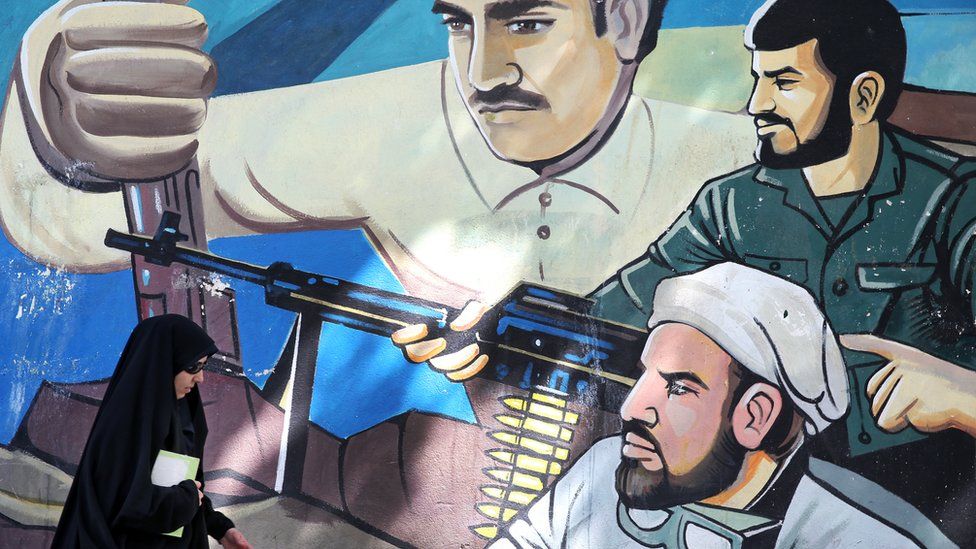Iran elections: Rouhani notes record 6% women elected
- Published

The president of Iran has congratulated voters on electing a record number of women to parliament since before the 1979 Islamic revolution.
It was President Hassan Rouhani's first reaction to the results of Friday's run-off election, in which moderates and reformists won a working majority.
The 17 women elected make up 6% of the new cohort of 290 MPs.
Only 16 cleric MPs have been voted in, meaning the new parliament will include more women than religious leaders.
President Rouhani acknowledged the new record and said: "People chose the best candidates in the 26 February and 29 April elections."
The BBC's Kasra Naji says the results signal "a major shift in public support away from hardline Islamic conservatives".
Friday's run-off election was held in constituencies where no candidate had won the minimum proportion of the vote in a first round in February. Four women were elected in the run-off, joining other women who had been voted in already.
The outgoing parliament includes nine female representatives.
Friday's vote gives women in Iran the same share of seats as in countries including Thailand and Nigeria.
An 18th woman was elected but her votes have been annulled by the Guardian Council, a constitutional oversight body. No reasons were given for excluding Minu Khaleqi after the first round.
President Rouhani lent support to her in his speech on Sunday when he told an audience "18 female legislators" had been voted in.
Analysis by BBC Persian's Kasra Naji
The election of a record number of women is a sign of a major shift in public support away from hard-line Islamic conservatives who have taken only 26% of seats - a dismal performance.
This shift is also apparent in the fact that almost all hardline clerics lost their seats. The number of clerics in parliament in Iran has steadily declined over the years from 164 in the first parliament just after the Islamic revolution in 1979.
Islamic hardliners see the declining number of clerics elected as a threat to the Islamic revolution and have called on more clerics to come forward and enter politics - at a time when many ordinary people are turning away from the religious leaders.
The elections have now ended the 12 year dominance of the Islamic hardliners over parliament.
What proportion of MPs in other countries are female?
- None - Qatar, Yemen and Vanuatu among others
- 3% - Lebanon and Papua New Guinea
- 6% - Nigeria, Thailand and now Iran
- 12% - India, Sierra Leone, Syria
- 19% - Tajikistan, the USA
- 24% - China, Estonia, Vietnam
- 29% - the UK
- 44% - Sweden, the Seychelles
- 49% - Cuba
- 53% - Bolivia
- 64% - Rwanda
Full figures for 2015 can be found on the World Bank website.